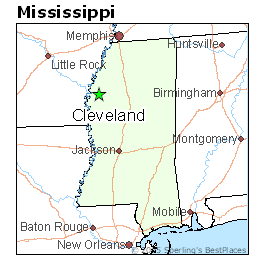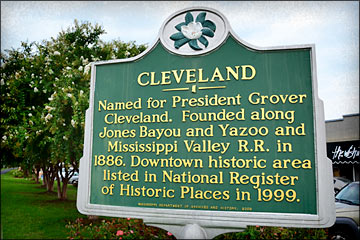 MISSISSIPPI
MISSISSIPPI
In a 94-page opinion, a federal court ordered a desegregation for Cleveland, Mississippi schools, rejecting as unconstitutional two alternatives proposed by the school district, the U.S. Department of Justice announced today.
The ruling comes 60 years after the Supreme Court’s decision in the landmark case of Brown v. Board of Education, officials said.
To read the federal court ruling click here: Cleveland, Mississippi Case
Late Friday, following a five-decade-long legal battle to desegregate schools in Cleveland, Mississippi, a federal court in ordered the Cleveland School District to consolidate its secondary schools.
The court rejected as unconstitutional two alternatives proposed by the school district, agreeing with the Justice Department that the only way to achieve desegregation is by consolidating Cleveland’s high schools and middle schools.
“Six decades after the Supreme Court in Brown v. Board of Education declared that ‘separate but equal has no place’ in public schools, this decision serves as a reminder to districts that delaying desegregation obligations is both unacceptable and unconstitutional,” said Principal Deputy Assistant Attorney General Vanita Gupta, head of the Justice Department’s Civil Rights Division. “This victory creates new opportunities for the children of Cleveland to learn, play and thrive together. The court’s ruling will result in the immediate and effective desegregation of the district’s middle school and high school program for the first time in the district’s more than century-long history.”
 In the opinion, the court made clear that the school district operated an inadequate dual system and failed to achieve the greatest degree of desegregation possible given the circumstances.
In the opinion, the court made clear that the school district operated an inadequate dual system and failed to achieve the greatest degree of desegregation possible given the circumstances.
The court concluded the opinion by noting that “the delay in desegregation has deprived generations of students of the constitutionally-guaranteed right of an integrated education. Although no court order can right these wrongs, it is the duty of the[d]istrict to ensure that not one more student suffers under this burden.”
Under the Justice Department’s plan approved by the court – which was developed in consultation with experts in school desegregation, school facilities, school financing and parent and community engagement – the district will consolidate the virtually all-black D.M. Smith Middle School with the historically white Margaret Green Junior High School, the court order stated.
The district will also consolidate the virtually all-black East Side High School with the historically white Cleveland High School.
Further, the district will review its existing educational programs and identify new programs for the consolidated schools, address staffing considerations and perform necessary maintenance and upgrades to facilities, according to the ruling.
The ruling follows years of collaborative work with the local community and private plaintiffs in this case. Community members – from parents and faith leaders, to former teachers and coaches – testified in court in 2012 and 2015.
They described the stigma long associated with the district’s black schools and the sense among black children in the community that white children attended better schools.
During last May’s hearing, they testified that consolidation was the only way to bridge the divide and expressed a willingness to take the steps, however difficult, to secure equal educational opportunities for their children and grandchildren.
Parents of all racial backgrounds testified that they want their children to learn in a diverse environment to prepare them to encounter the world today.
The approved plan commits the district to a path of full engagement with students, parents, educators and community stakeholders in implementing consolidation.
Cleveland is a small Mississippi-Delta city of 12,000 residents, divided by railroad tracks that separate east from west as well as black from white.
As one community member testified, “[w]e can break down this wall of racism that divides us and keeps us separated, and we could create a new culture in our school system that’s going to unite us and unite our whole city.”
Justice Department officials state that shares the sentiments of the court that “the[d]istrict’s commitment to the education of its children will no doubt ensure that the gem that is Cleveland, along with its surrounding areas, only shine brighter as the shadows of segregation recede.”
The Civil Rights Division works to enforce desegregation orders in school districts formerly segregated by law, which have not yet fulfilled their legal obligation to eliminate segregation “root and branch,” according to officials.
The division continues to prioritize enforcement of court orders addressing segregation in our nation’s schools to ensure that all children can access the building blocks of educational success.

